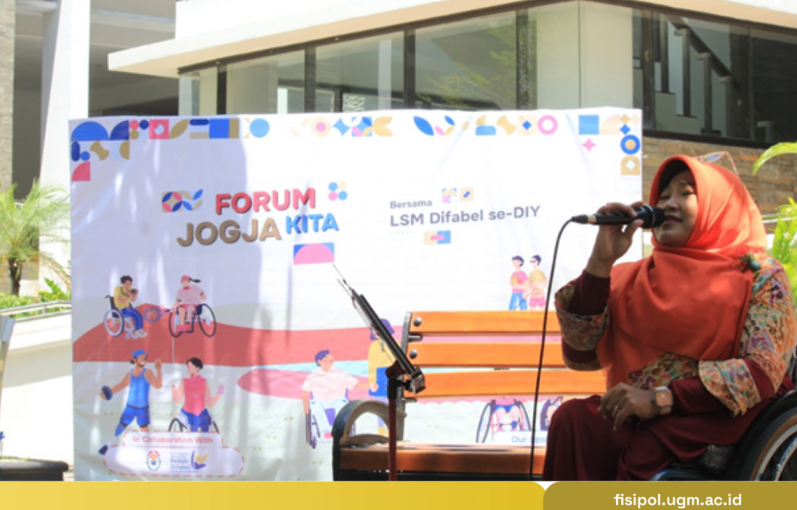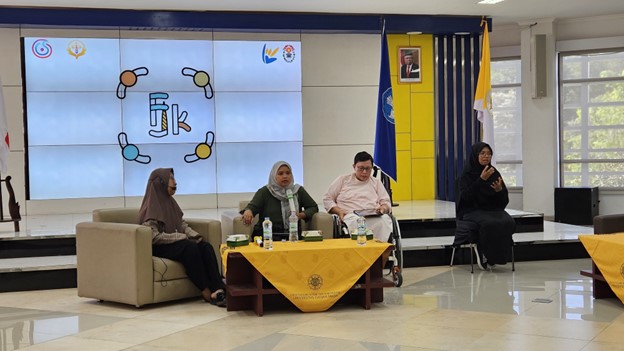
Yogyakarta, 20 September 2024─As a direct democracy for all Indonesians, the 2024 General Election still has a lot of evaluation to do with disability rights and inclusiveness. This is because many people with disabilities feel unrepresented and do not get proper accommodation. Therefore, FJK 2024 carries the theme “Fulfillment of Disability Rights in Election Implementation”, a crucial topic that demands immediate attention.
The event, held in Taman Sansiro Fisipol, featured various interesting activities, including interactive tenants and performances by people with disabilities. According to Nugroho Prasetyo Aditama, Chairman of BEM KM UGM 2024, this activity played a significant role in raising awareness among participants and highlighting the importance of inclusivity in political participation.

One of the event’s main highlights was a talk focused on increasing participation and privacy in elections. These discussions provided a platform for experts, activists, and individuals with disabilities to share their insights and experiences on the challenges of exercising their political rights.
In the talk show hosted by Aida Mudjib, LPDP Awardee with Disabilities UGM, it was known that the political rights of persons with disabilities in Indonesia are still an issue that needs serious attention. Although there has been progress in recognizing these rights, big challenges remain, especially in fulfilling accessibility and inclusive facilities.
“The problem faced by friends with disabilities is the absence or support of adequate facilities and infrastructure. Especially blind or low-vision friends must be accompanied during the voting process. That does not fulfil the principle of confidentiality in elections,” said Wuri Handayani, a resource person and lecturer on disability.
Therefore, Devy Dhian Cahyati as an Electoral Politics Expert, emphasized the urgent need for regulatory efforts that are more responsive to the needs of people with disabilities, such as analyzing the implementation of policies. This includes improving data collection methods, involving disabled organizations, and eliminating the negative stigma that still exists in society.
The talk show also served as a space to formulate a policy brief to advocate for the specific needs and rights of people with disabilities in the electoral process. The policy brief aims to provide recommendations to policymakers on creating a more inclusive electoral system that accommodates the needs of all citizens, regardless of their physical abilities.
